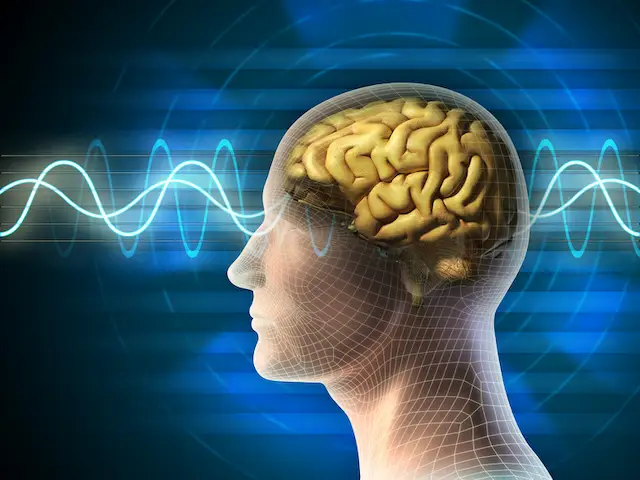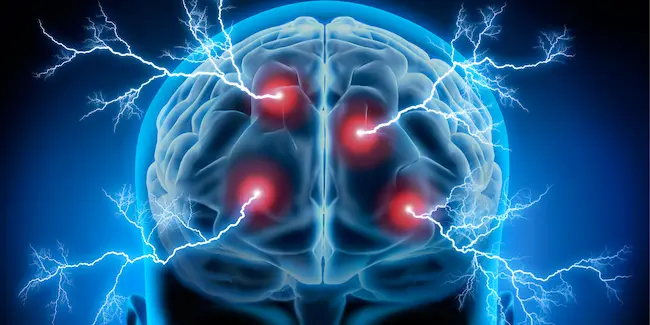Nootropic peptides are gaining attention in scientific studies for their possible role in supporting memory, focus, and overall brain function. These short chains of amino acids are being examined for how they may influence cognitive pathways linked to learning and mental performance.
Among the best nootropic peptides highlighted in current research are Selank, Semax, and P-21. Each has drawn interest for unique mechanisms under study, ranging from mood regulation to neuroprotection, making them important subjects in the field of cognitive science.
In this article, we explore the best nootropic peptides, including Selank, Semax, and P-21, and highlight what scientific findings reveal about their potential links to brain performance, memory, and cognitive enhancement.
Discover Selank from Peptide Works, a peptide noted for supporting calm focus and balanced cognitive performance.
How Nootropic Peptides Support Memory and Focus?

Memory and focus depend on clear communication between brain cells. Nootropic peptides are linked to this process because they can influence how neurotransmitters travel and how signals travel and how long those signals remain strong. By supporting balance in neurotransmitters, they may help the brain retain new information more effectively, improve cell signaling, and reduce brain fog caused by stress or sleep deprivation.
This precision makes them stand out from general nootropics, which often act in broader ways. When linked to learning tasks, nootropic peptides like Selank are discussed as potential tools for keeping attention steady and improving recall, both of which are key parts of boosting overall brain performance.
How Selank Supports Memory, Focus, and Mental Clarity?
Selank is a synthetic nootropic peptide derived from the natural immunopeptide tuftsin. It is often noted for its dual action on both mood and cognition, which makes it distinct from general stimulants. One of its main roles is modulating neurotransmitters such as GABA and serotonin, systems closely tied to attention, calmness and mental health.
Research also connects Selank with the upregulation of brain-derived neurotrophic factor (BDNF) and nerve growth factor, a protein essential for forming new neural connections and supporting memory consolidation. By combining stress-reducing effects with improved signaling in pathways linked to learning, this cognitive peptide provides a balanced profile sharper focus without overstimulation. These effects are closely tied to Selank’s regulation of neurotransmitters.

How Selank Balances Neurotransmitters for Sharper Thinking?
Selank’s influence on cognition is closely tied to its effect on key neurotransmitters. By enhancing GABA activity, it supports the brain’s natural braking system, which helps prevent signal overload and keeps processing efficient.
Its interaction with serotonin pathways contributes to stable mood regulation, which indirectly aids focus and sustained attention. Selank has also been linked to dopamine balance, a neurotransmitter central to motivation, goal-directed behavior, and sharper executive function.
Among the best nootropic peptides, Selank stands out for this multi-pathway action. Alongside Selank, other compounds such as Semax are also noted for their impact on neurotransmitter systems, especially in areas connected to learning and memory. Semax has also been studied for its influence on learning and memory pathways and its mechanism of action in promoting brain resilience.
How Semax Enhances Learning and Memory?
Semax is known for raising levels of BDNF, a protein that helps the brain grow new connections. This process, called plasticity, is key for learning and memory. With stronger links between brain cells, it becomes easier to store new information and recall it later.
As one of the best nootropic peptides, Semax also affects dopamine and serotonin. These messengers control mood, focus, and drive, which makes learning more steady and flexible. The result is support for both quick tasks and long-term memory. Semax’s nootropic effects may also be useful in studies of Alzheimer’s disease, where preserving memory and cell function is vital.
Together with Selank, researchers often mention P-21. This peptide is tied to BDNF as well and is recognized for its role in memory and brain protection. Alongside Semax, P-21 has been linked to processes that support both memory and brain protection. In these studies, Semax has also been shown to influence cerebral blood flow, contributing to overall neural vitality.
Explore Semax from Peptide Works, a peptide studied for its role in memory formation, learning performance, and neural resilience.
P-21 and Its Role in Memory and Brain Protection

P-21 is a synthetic peptide developed from CNTF fragments. It is able to enter the brain by passing through the blood–brain barrier and influence growth factors such as BDNF, which are vital for building and maintaining memory networks. Because of this link with neurogenesis, P-21 is seen as a promising option for improving learning and recall while supporting energy levels in neural tissues.
It may also protect existing brain cells. Reports suggest P-21 can lower the build-up of amyloid plaques and tau proteins, both connected to Alzheimer’s and other degenerative problems. Limiting these deposits helps neurons remain active and lowers the risk of memory loss and mild cognitive impairment.
With its combined effects on growth and protection, P-21 is often grouped with Selank and Semax as one of the best nootropic peptides studied for long-term brain support. Comparing Selank, Semax, and P-21 highlights how their functions differ across cognitive domains, including their ability to counteract oxidative stress and oxidative damage through cellular resilience and improved mitochondrial function.
Shop P-21 from Peptide Works, a synthetic peptide investigated for supporting neurogenesis, brain protection, and long-term cognitive health.
Comparing Selank, Semax, and P-21: Which Nootropic Peptide Stands Out
Selank, Semax, and P-21 are often grouped together among the best nootropic peptides, yet each carries a distinct profile. Selank is most associated with steady focus and emotional balance, making it useful in settings where stress can disrupt clear thinking. Semax is recognized for its impact on learning and recall, often highlighted for its role in strengthening memory formation.
P-21, in contrast, is viewed more through the lens of long-term resilience. It is tied to neurogenesis and protective processes that help preserve neural pathways over time. This makes it especially relevant in research studies that explore aging and brain repair. These investigations also evaluate their function of the neurotransmitter systems and their safety through clinical trials.
| Peptide | Distinctive Feature | Comparative Strength | Potential Application Area |
|---|---|---|---|
| Selank | Strong link with anxiolytic action and stable focus | Stands out for regulating emotional tone without sedation | Stress-related cognitive decline, attention tasks |
| Semax | High impact on synaptic plasticity and recall | Stands out for short-term and long-term memory enhancement | Learning performance, memory-intensive work |
| P-21 | Emphasis on neuroprotection and structural repair | Stands out for long-term brain resilience | Age-related decline, neurodegenerative research |
These distinctions point toward the future direction of nootropic peptide research.
The Future of Best Nootropic Peptides
The study of peptides such as Selank, Semax, and P-21 is opening new directions in cognitive science. These compounds are being examined for their potential to support memory, focus, and long-term brain resilience, while also showing promise in protecting neurons and aiding repair.
Although much remains to be explored, findings so far suggest that these best nootropic peptides may play an important role in strengthening cognition and maintaining fewer side effects compared to traditional stimulants. At Peptide Works, we provide research-grade peptides worldwide, supporting scientists as they investigate the next steps in advancing brain health.
All peptides and compounds mentioned are strictly for research purposes only and not for human use.
References
[1] Asua D, Bougamra G, Calleja-Felipe M, Morales M, Knafo S. Peptides Acting as Cognitive Enhancers. Neuroscience. 2018 Feb 1;370:81-87.
[2] Malík M, Tlustoš P. Nootropics as Cognitive Enhancers: Types, Dosage and Side Effects of Smart Drugs. Nutrients. 2022 Aug 17;14(16):3367.
[3] Volkova A, Shadrina M, Kolomin T, Andreeva L, et al. Selank Administration Affects the Expression of Some Genes Involved in GABAergic Neurotransmission. Front Pharmacol. 2016 Feb 18;7:31.
[4] Dolotov OV, Karpenko EA, Seredenina TS, Inozemtseva LS, et al. Semax, an analogue of adrenocorticotropin (4-10), binds specifically and increases levels of brain-derived neurotrophic factor protein in rat basal forebrain. J Neurochem. 2006 Apr;97 Suppl 1:82-6.
[5] Chiani F, Mastrorilli V, Marchetti N, Macioce A, et al. Essential role of p21Waf1/Cip1 in the modulation of post-traumatic hippocampal Neural Stem Cells response. Stem Cell Res Ther. 2024 Jul 6;15(1):197.









